On 11th February, trans and queer members of Sappho for Equality were brutally attacked by a mob of cis men and women in Kolkata’s elite Jodhpur Park neighbourhood. According to an Instagram post by Queering the Frame, Sayan Sheikh, a member identifying as transmasculine, had gone to the Reliance Smart Point near Sappho’s cafe and queer community space Porshi to buy some necessities. In the billing queue, following some verbal altercation with a woman over queue jumping, a group of people turned violently Islamophobic and transphobic once they discovered Sayan’s identity.
On 11th February, trans and queer members of Sappho for Equality were brutally attacked by a mob of cis men and women in Kolkata’s elite Jodhpur Park neighbourhood.
‘When they saw the amulet around Sayan’s neck, they started making Islamophobic comments like ‘these Muslim boys are soiling our neighbourhood’. On learning he is transmasculine, their slurs turned transphobic.’ Koyel Ghosh, the managing trustee at Sappho’s cafe Porshi, told FII.
Threats of violence and beatings were hurled at Sayan by the growing crowd and when Ree, who is assigned female at birth came to help, the crowd threatened rape and sexual violence.
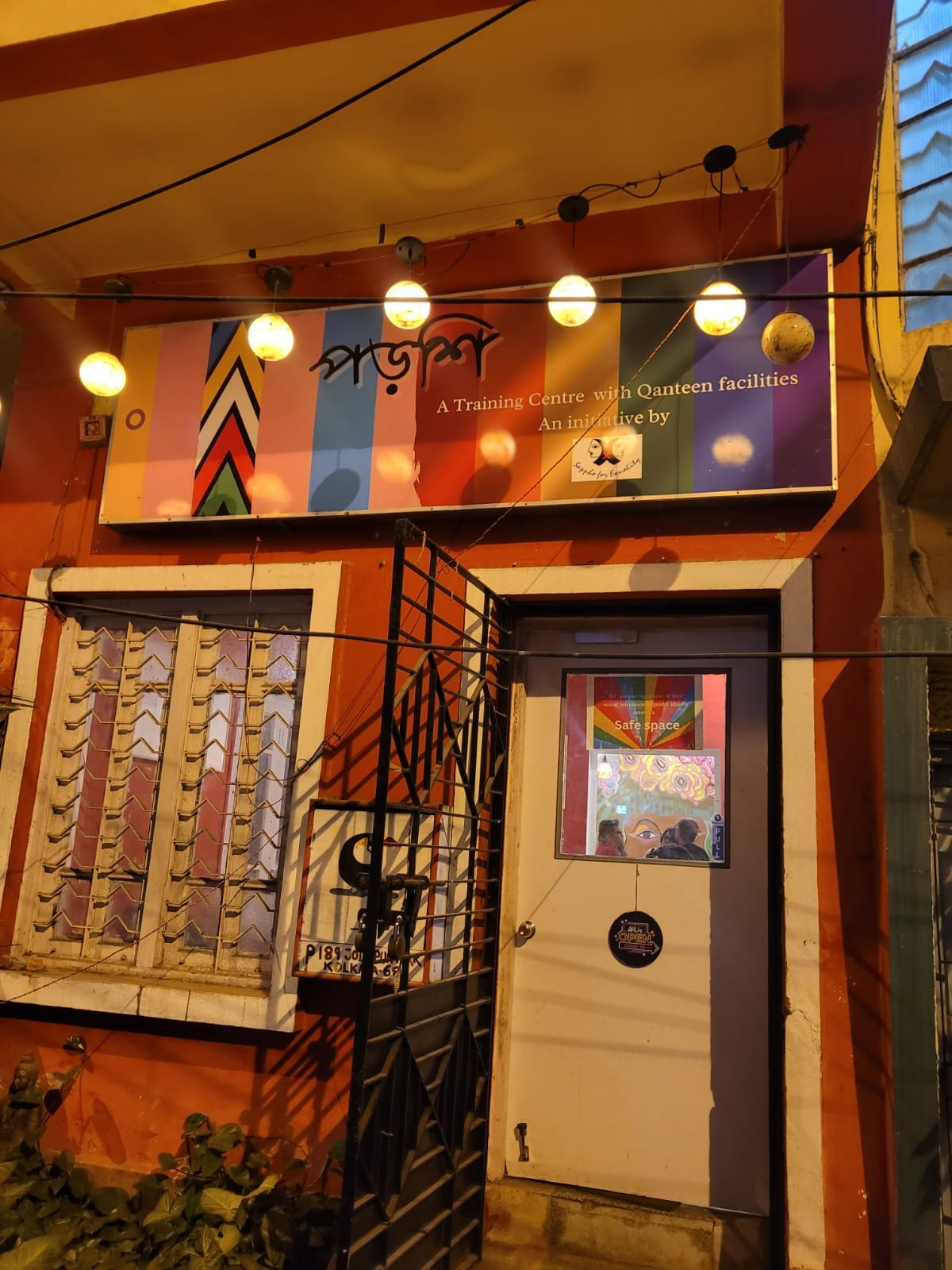
The members of Porshi were beaten up by the mob, as the local crowd watched on as silent onlookers. As more community members namely Redan Khan, Ankana Dey and Koyel Ghosh came from nearby Porshi to defend Sayan, the violent mob of cis men called on a group of cis women. The mob groped, dragged and beat up Ankana, and attacked Ree and Koyel from all sides, striking them with helmets. Meanwhile, they attacked Sayan, pulling at his hair and injuring him violently.
In the meantime, the reaction of the Reliance Smart Point staff was apathetic. Neither did they intervene, nor did they show any support to the victims, by calling the police, instead telling them to ‘sort it out outside‘.
It was the Sappho members who had to call the police and they were 25-30 minutes late in arriving from the nearby Lake Police Station.
It was the Sappho members who had to call the police and they were 25-30 minutes late in arriving from the nearby Lake Police Station. ‘When they arrived, they took us in the police van to the station in order to “protect” us. At the station again, we were faced with scrutiny when we said we wanted to charge the miscreants with an FIR under the Trans Act,‘ says Koyel. ‘The Officer in Charge said that the reason trans people get attacked is because the hijra community begs for money. We had to explain that being trans does not mean one is from the hijra community. Also this antagonisation towards the Hijra community is based on individualistic instances and cannot be held against the community at large. At the police station, after facing violence, we had to explain the Trans Act to them.‘
From the police station, the victims were sent to Baghajatin State Hospital for a medical examination where their injuries were not checked properly and they were sent away after being administered Voveran injections.
However, an FIR was filed and there has been police patrolling near Porshi ever since. ‘The miscreants have been identified from the Reliance Smart Store CCTV footage and the local councilor, who we have met has assured us and has asked the police to serve justice as fast as possible‘ Koyel told FII.
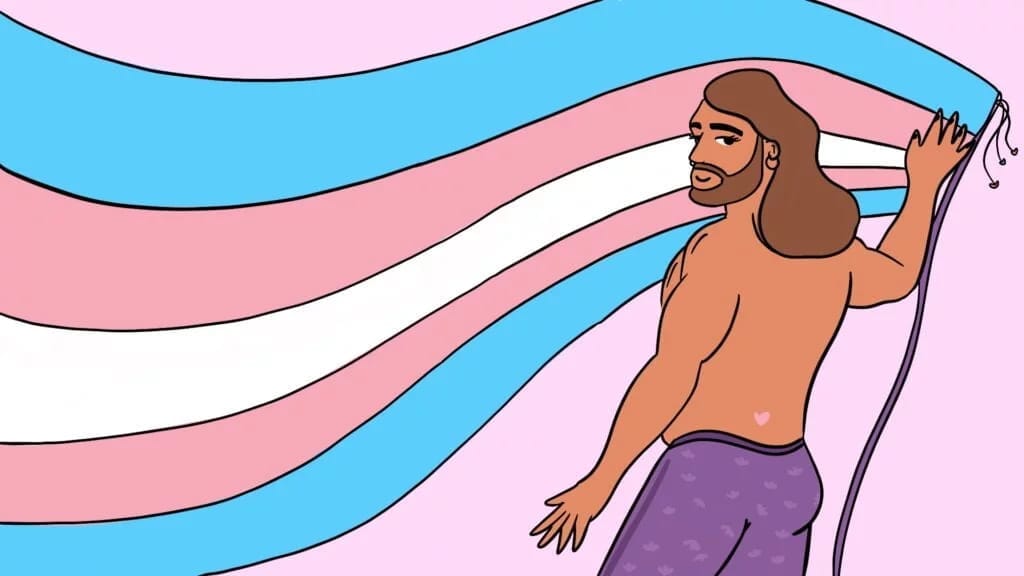
In the Instagram post, Sappho members allege that the Porshi community has been attacked before too, with their electric cords being cut off and banners torn.
‘From the time we started Porshi, the people living in the houses nearby were directly against this space that we have set up, from the way our staff looks, from the way we carry ourselves. Every time they are out in the open, the neighbours pass comments like ‘I don’t know if these are boys or girls. These are anti-social elements. I don’t know why they are in this respectable locality. The presence of such people is a disgrace to the entire colony,‘‘ says Koyel.
Jodhpur Park is a predominantly upper caste upper class neighbourhood and the people at Porshi are working class people, who do not come from economically privileged backgrounds. The staff at Porshi are survivors of natal family violence and have been in Sappho’s shelter homes where they have been trained for work. Many of them were married off at the age of 14-15 years and have realised they are transmasculine and decided to run away from their natal family or were disowned by their family. For some, their divorces with men are still pending.
The staff at Porshi are survivors of natal family violence and have been in Sappho’s shelter homes where they have been trained for work.
‘There is an immediate sense of otherisation we feel in this neighbourhood. While I was under the delusion that a space like Porshi will not have as many cases of violence as we encounter in other parts of the city, I was proved wrong by the violence on 11th February‘ Koyel tod FII.
‘From the menu card outside being slashed with a blade and electric cords of outdoor fairy lights being cut to our electric bell being damaged and trash being thrown in front of the cafe, the space has come under direct and indirect attack before, causing a sense of fear and anger in us.‘
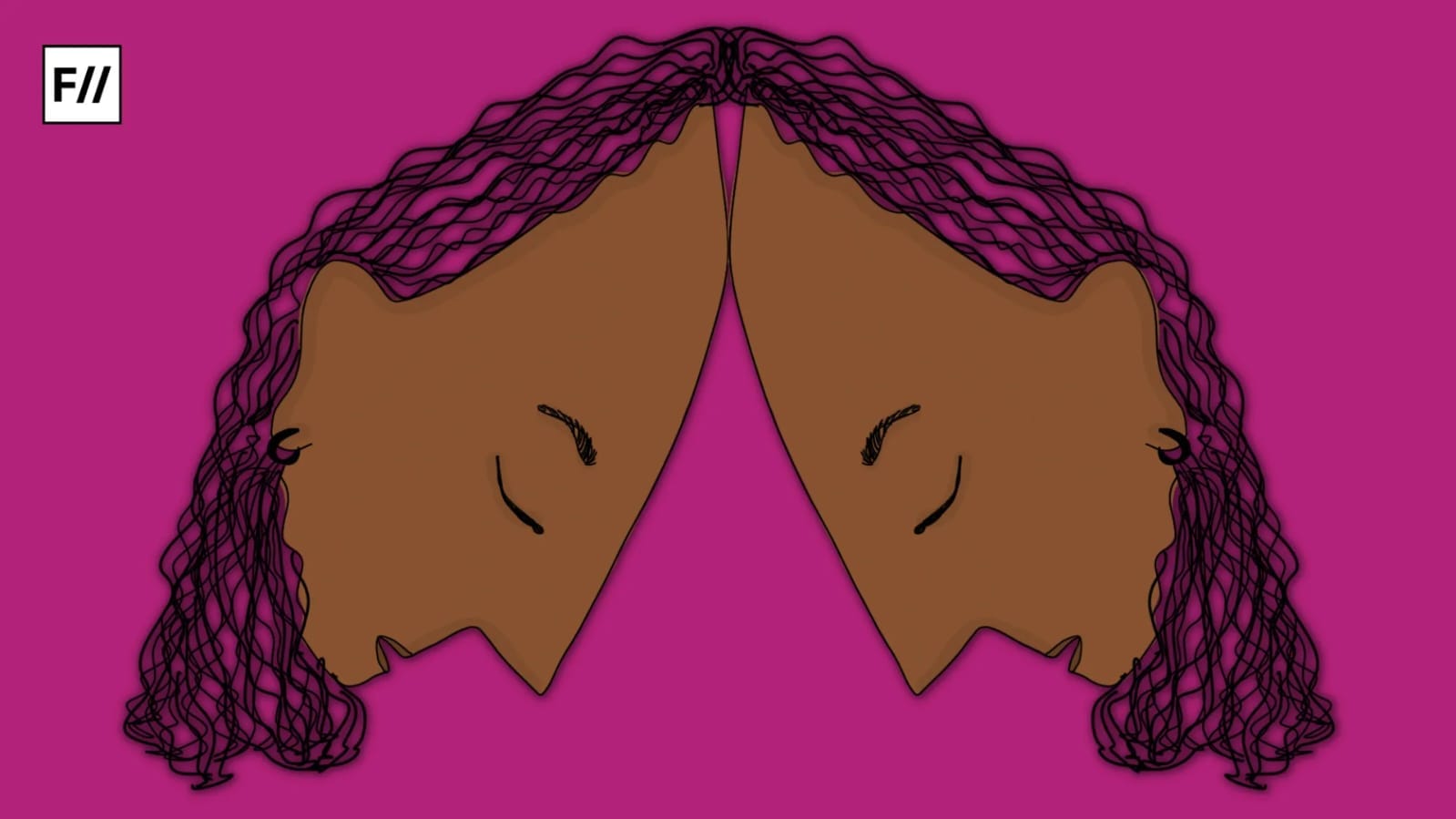
‘When we created this space, we called it Porshi, which means “neighbour”. We referred to the Biblical idea of ‘love thy neighbour’. Our message was that we are queer and we are here, right beside you. We are open to locals coming and having a conversation with us if they have doubts, stigmas or myths surrounding the community,‘ says Koyel. ‘However, people who come here are from the queer trans community or allies. We have hardly seen other people outside of the queer fraternity step into the cafe.‘
Trans and queer lives in the city
For years, Kolkata had upheld the image of being a so-called “safe” city. However, recently incidents have truly shattered this perception. In August, 2024, a junior doctor at the city’s premiere RG Kar Medical College and Hospital was brutally raped and murdered. While protesting this horrific incident, trans activists were groped, heckled and harassed at the metro station by the subway authorities.
While protesting the queerphobic ragging and subsequent death of a first year Jadavpur University student in 2023, trans activist Urmi and their comrades were brutally attacked by a violent mob, and later harassed by the Jadavpur Police Station constables. The city is built against marginalised genders and they have faced abject oppression under the heteronormative, patriarchal and violent systems that supposedly “own” the public sphere.
The myth of Kolkata as a safe city is perpetuated by the notion that the ubiquitous Bengali is progressive, educated and idealistic. However, narrow minded-ness, sexism, queerphobia and casteism festers the psyche of the figure of the Bengali “bhodrolok”. Despite being raised on a breakfast, lunch and dinner of Satyajit Ray, Tagore and Marx, the Bengali middle class and petty bourgeoisie still harbours a culture of repression, hate and violence, steeped in Brahminical patriarchy. They are just better at hiding it behind a progressive facade.
Despite being raised on a breakfast, lunch and dinner of Satyajit Ray, Tagore and Marx, the Bengali middle class and petty bourgeoisie still harbours a culture of repression, hate and violence, steeped in Brahminical patriarchy.
Porshi, incidentally, is located in an elite bhodrolok neighbourhood of Kolkata– Jodhpur Park. Known for its posh houses and quaint cafes, it is nestled in the heart of South Kolkata. However, queer members of Sappho for Equality have faced violence, overt and covert in this so-called “upscale” neighbourhood. The very idea that violence cannot take place in spaces like Jodhpur Park, which is the hub of Kolkata’s high income upper middle class, is rooted in a thought process that attributes violence only to a certain class/caste/cultural demographic.
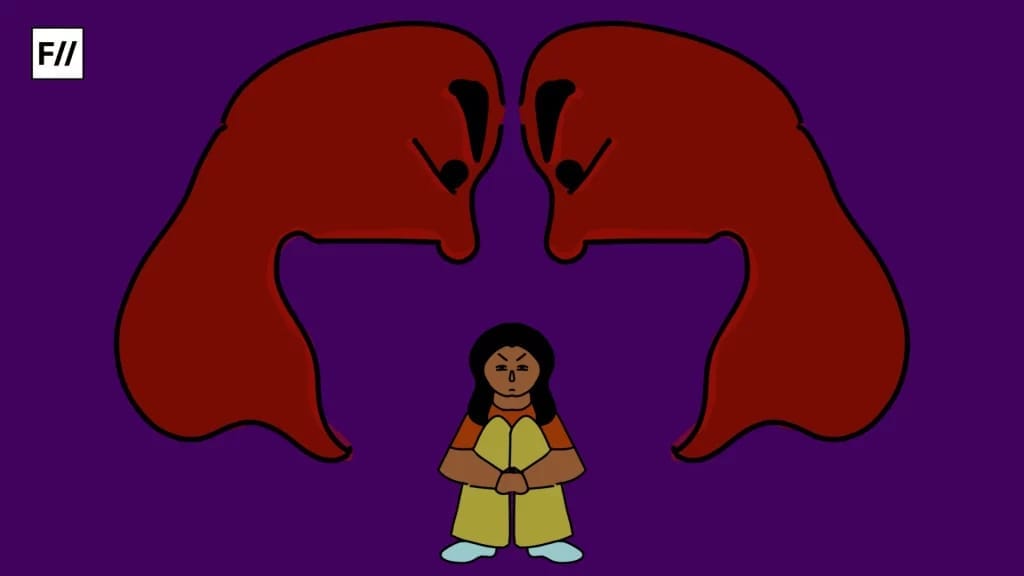
Violence is the ground reality for queer people not only in homes but also in public spaces, irrespective of who occupies and “owns” those spaces.
Whose city is it, anyway?
Through Porshi, Sappho for Equality had tried to queer the space of the city. The brutal attack on Porshi and the people who built this community space proves once again that though pockets of resistance and joy exist for queer people through pride marches, queer-led pop-ups, cafes, panel discussions on gender and film festivals, the everyday life in the city for queer people is informed by systemic violence and prejudice.
‘Anyone who is outside the gender binary walking in public is walking along with “the tyranny of gender” according to Petra Doan. They face all forms of surveillance and violence.’ Debanuj DasGupta, a professor of Feminist Studies and a Feminist Geographer told FII. ‘I think the first thing that makes the city safer is that there should be visible signs of celebration of trans queer lives that makes the person feel safer. Multiple gender bathrooms in public spaces with visible signs, public allocation of space makes it a visible reminder that the space belongs to everybody. Secondly, sensitisation of police and neighbourhoods is very important. Finally having more visible trans and queer people and women on the streets is crucial. There should be a city wide campaign that brings the safety of people from diverse gender identity to the forefront.’
While islands of safe spaces and queer led events are crucial to build community and solidarity, the project of reclaiming the city from the grip of the heteronormative and patriarchal powers has to be far more subversive and radical. Queer people are not here to just put up stalls and talk about their lived experiences at panels and events, they have as much right to public spaces as cis-straight people. The myth of the “safe” city will remain only a myth until we make sure that the public space is accessible to and welcoming for all.
The myth of the “safe” city will remain only a myth until we make sure that the public space is accessible to and welcoming for all.
‘While we would want justice to be served, we are also worried about the consequences of putting the perpetrator behind bars. We are apprehensive about being marked and attacked again for seeking justice‘ says Koyel. ‘The staff goes home late at night and I’m worried about the safety of the people of Porshi as well as the space.’
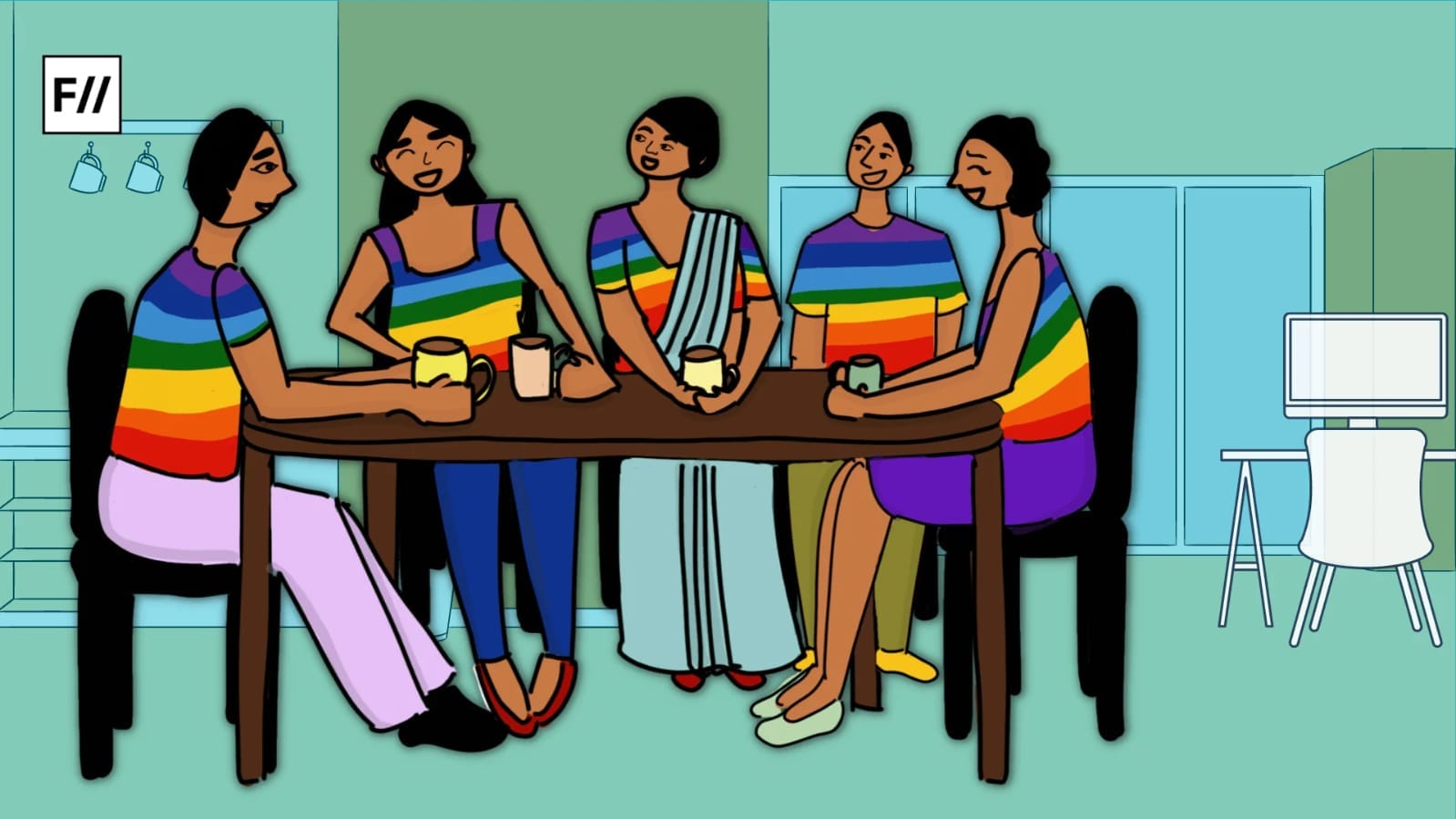
However, the Porshi team is willing to have a sensitive conversation with their neighbours. ‘As our banner says, Porshi is a safe space for all irrespective of gender, caste and religious identities. We have also conveyed to the authorities that we would like to have sensitisation sessions with the local people and they are welcome to ask us questions and have meaningful conversations with us‘ says Koyel.
Queer people have always existed, as have public city spaces. Pushing them into invisiblisation and oblivion through violence, threats and coercion will not erase the community. Instead, the city space must be queered and reclaimed. The violence that the members of Porshi faced is a testament to the fact that our city was never a safe space. It is time to move away from the sentimental nostalgia that propagates the myth of a “safe” Kolkata and actually strive to radically reimagine our city spaces.
About the author(s)
Ananya Ray has completed her Masters in English from Jadavpur University, Kolkata, India. A published poet, intersectional activist and academic author, she has a keen interest in gender, politics and Postcolonialism.
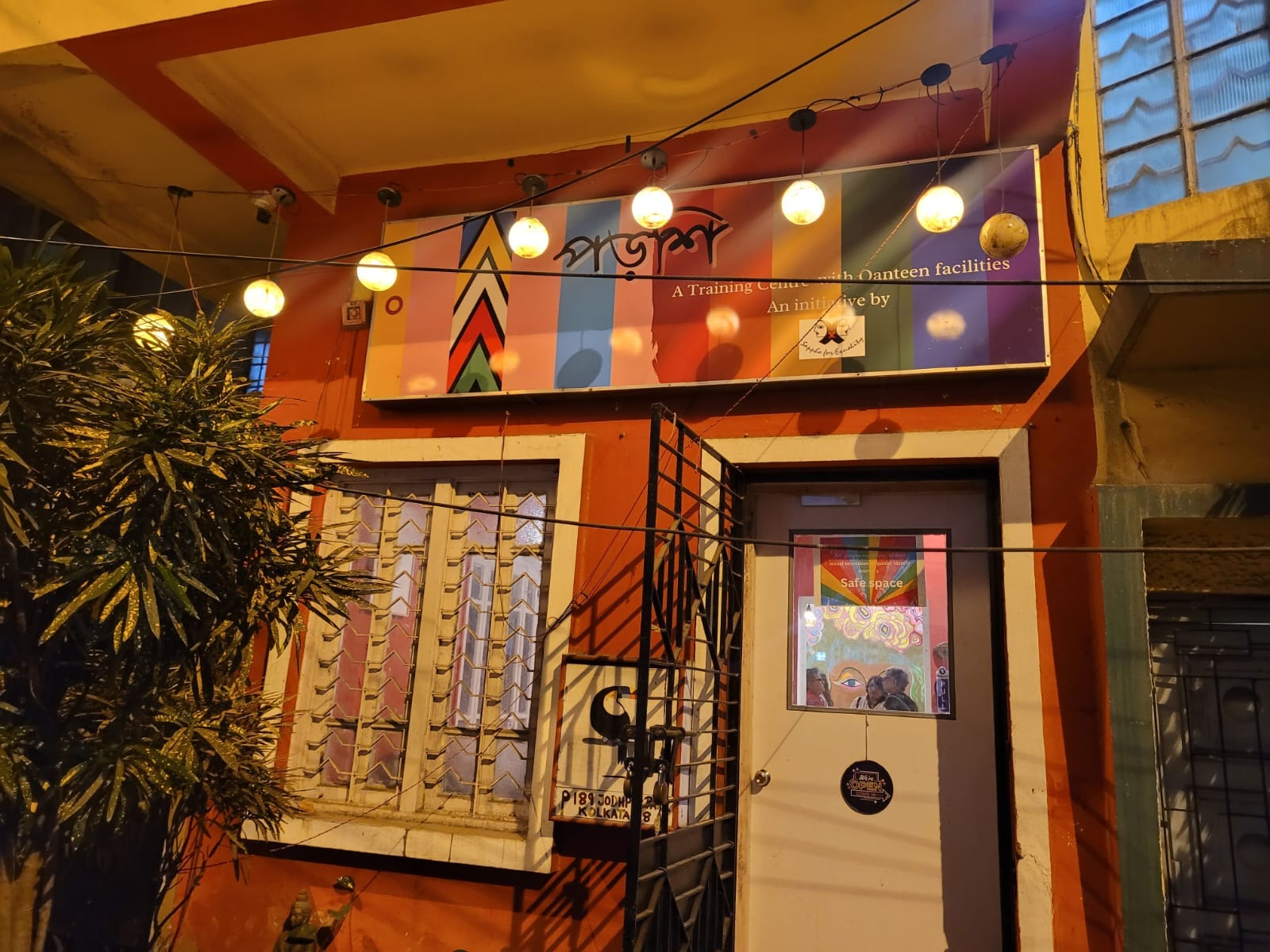


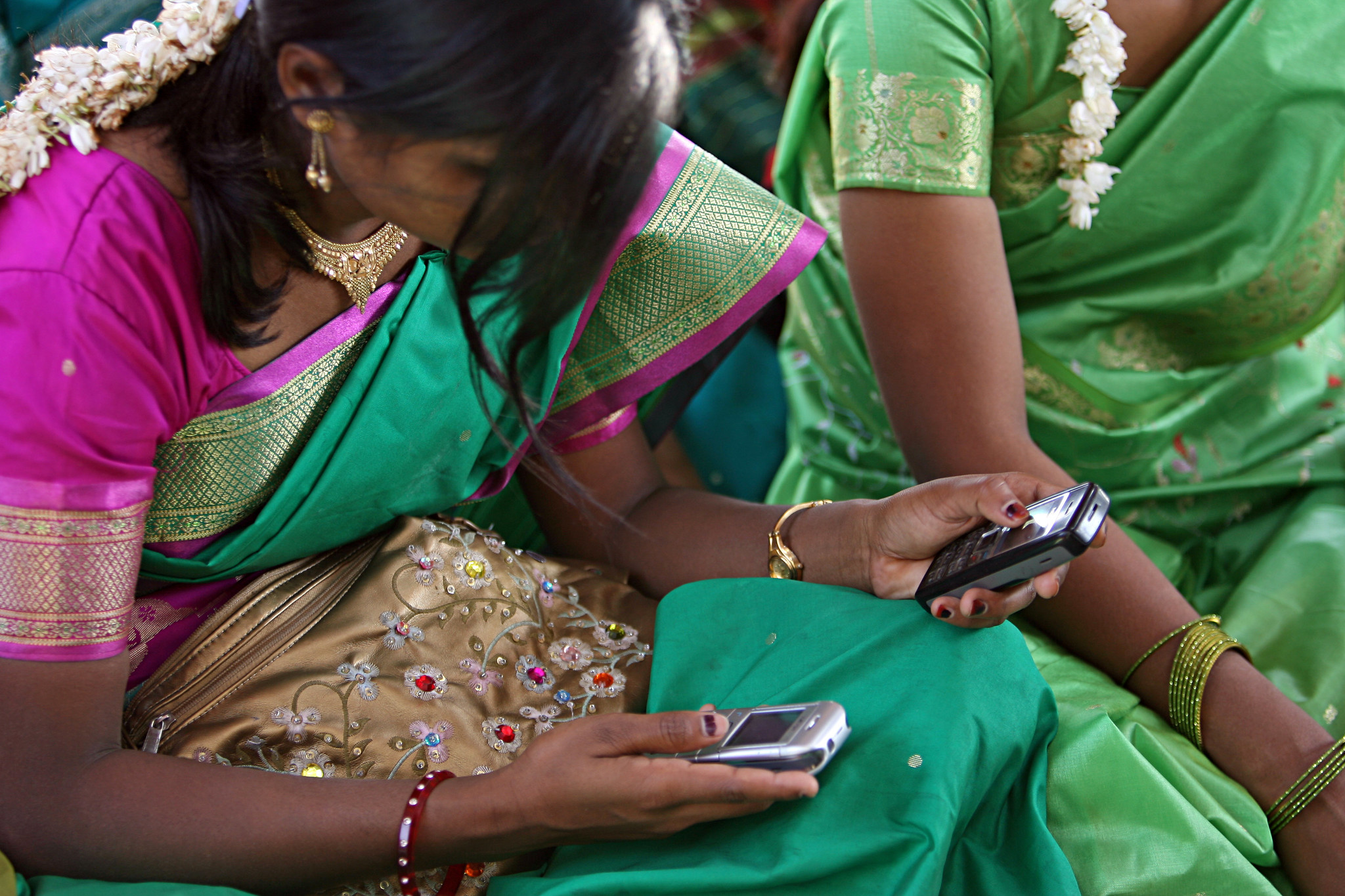


The term ‘ Safe City’ is a farce and it has never existed ever in the expansive contour of any cities ranging across the geographical terrain with manifold urban reality. For LGBTQ and Queer like us, cities may offer us the space to reclaim our identity by which we rupture our closet to manifest our visibility but contrary to it, a city is also a hot bed of endless crime and hatred that is concertedly propagated by the cis heteronormative ecology who deliberately shuns and muffle our existential reality with the collusive tactic of violence orchestrated by different institutional bodies. We need a radical cerebral transformation and also a continual resistance to problematise and challenge the cis heteropatriarchal maniacs. Together we will stand and together we will pave way for a new resilience to fight against this oppressive mentality.